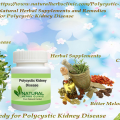Is it safe to use herbal supplements if I have kidney disease?
You may think about using Herbal Supplements for Polycystic Kidney Disease or to help with any health concerns you may have, but as a patient with kidney disease, you should use caution with herbal supplements.
The use of herbal supplements is often unsafe if you have kidney disease since some herbal products can cause harm to your kidneys and even make your kidney disease worse. Also, your kidneys cannot clear waste products that can build up in your body.
The herbal supplement market is a multi-million dollar business. You may hear from a friend or family member about an herbal supplement that they think has improved their health or well-being and they suggest it to you. While this advice may be fine for them, it can be dangerous for you with kidney disease.
What are the facts about herbal supplements?
The following facts about herbal supplements are true for everyone, with or without kidney disease. Herbal supplements often have more than one name: a common name and a plant name. Some common concerns include:
The Food and Drug Administration (FDA) does not regulate herbal supplements for dose, content, or pureness.
Some herbal supplements have aristolochic acid, which is harmful to the kidneys.
Herbal supplements made in other countries may have heavy metals.
There are few studies to show if herbal supplements have real benefits in Natural Remedies for Polycystic Kidney Disease and even less information in patients with kidney disease.
Herbal supplements may interact with prescription medicines to either decrease or increase how the medicine works.
Which herbal supplements have potassium?
Potassium is a mineral that may need to be limited in the diet of people with kidney disease especially those on dialysis. Herbal supplements that have potassium include:
Alfalfa
American Ginseng
Bai Zhi (root)
Bitter Melon (fruit, leaf)
Black Mustard (leaf)
Blessed Thistle
Chervit (leaf)
Chicory (leaf)
Chinese Boxthorn (leaf)
Coriander (leaf)
Dandelion (root, leaf)
Dulse
Evening Primrose
Feverfew
Garlic (leaf)
Genipap (fruit)
Goto Kola
Japanese Honeysuckle (flower)
Kelp
Kudzu (shoot)
Lemongrass
Mugwort
Noni
Papaya (leaf, fruit)
Purslane Sage (leaf)
Safflower (flower)
Sassafras
Scullcap
Shepherd’s Purse
Stinging Nettle (leaf)
Which herbal supplements have phosphorus?
Phosphorus is a mineral that may need to be limited in the diet of people with kidney disease especially those on dialysis. Some herbal supplements that have phosphorus include:
American Ginseng
Bitter Melon
Borage (leaf)
Buchu (leaf)
Coriander (leaf)
Evening Primrose
Feverfew
Flaxseed (seed)
Horseradish (root)
Indian Sorrel (seed)
Milk Thistle
Onion (leaf)
Pokeweed (shoot)
Purslane
Shepherd’s Purse
Silk Cotton Tree (seed)
Stinging Nettle (leaf)
Sunflower (seed)
Turmeric (rhizome)
Water Lotus
Yellow Dock
Which herbal supplements should I avoid if I have kidney disease?
Herbal supplements that are especially risky for patients with any stage of kidney disease, who are on dialysis or who have a kidney transplant include:
Astragalus
Barberry
Cat’s Claw
Apium Graveolens
Creatine
Goldenrod
Horsetail
Huperzinea
Java Tea Leaf
Licorice Root
Nettle, Stinging Nettle
Oregon grape root
Parsley Root
Pennyroyal
Ruta Graveolens
Uva Ursi
Yohimbe
What about herbal supplements that act like a “water pill”?
Some herbal supplements that act as a diuretic or “water pill” may cause “kidney irritation” or damage. These include bucha leaves and juniper berries. Uva Ursi and parsley capsules may also have bad side effects.
Can herbal supplements interfere with the other medicines I take?
Many herbal supplements can interact with prescription drugs. A few examples are St. Johns Wort, echinacea, ginkgo, garlic, ginseng, ginger, and blue cohosh. If you have a kidney transplant you are especially at risk, as any interaction between herbal supplements and medicines could put you at risk for losing your kidney.
Are there other health related issues for herbal supplements?
As with anyone, patients with kidney disease may have other health-related issues. If you have a history of a bleeding disorder you are at high risk for bad reactions to herbal supplements. Women who are pregnant or lactating, as well as children, are also at high risk.
What should I tell my doctor, dietitian, or other healthcare providers?
In general, it is not recommended for patients with kidney disease to use herbal supplements. If you choose to take one, always tell your doctor, dietitian, or other health care provider. Always update the use of herbal supplements as Herbal Treatment for Polycystic Kidney Disease visits to your healthcare provider as a medication change.
Resource Article
https://www.kidney.org/atoz/content/herbalsupp


